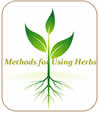Hemp
- Common Names
- Hemp Oil
- Botanical Name
- Syn. C.sativa ssp. indica
- Family
- CANNABACEAE
Medicinal Uses & Benefits of Hemp Oil
![]() How to Use|
Side Effects |
Plant & Garden|
Folklore
How to Use|
Side Effects |
Plant & Garden|
Folklore
- Medicinal Uses: * Constipation
* Massage Oils
- Properties: * Analgesic * Antispasmodic * Aphrodisiac * Calm * Communication * EFA * Emmenagogue * Meditation * Nervine * Psychedelic * Sedative
- Parts Used: flowers, leaves, seeds
How to Use: Hemp
Hemp, ( sativa), seed is a highly nutritious food, and contains anti-oxidants, protein, carotene, phytosterols, phospholipids, as well as a number of minerals including calcium, magnesium, sulfur, potassium, iron, zinc, and phosphorus. It is a source of complete protein and contains all twenty know amino acids, including the nine essential amino acids. It also contains Vitamins A, B1, B2, B3, B6, C, D, and E. The green color in hemp seed oil is a result of the high level of chlorophyll which is naturally present in the seeds.

Hemp seed oil is a
luxurious skin treatment
Perhaps the most valued property of ( sativa) is its percentage of essential fatty acids, which is higher than any other plant in the world. It contains both Omega-6 and Omega-3 Essential Fatty Acids, in a proportion of 3:1. This proportion is the recommended balance of Omega-6 to Omega-3 acids, making it a simple perfect way to complete your diet. Essential fatty acids are necessary for our health, and are responsible for the luster in our skin, hair, eyes, transferring oxygen to the every cell in our body, and even the clarity in our thought processes. Hemp seeds are comparable to sunflower seeds, and may be used for food and milk, tea, and for baking, like sesame seeds.
Although sativa is illegal in the United States because of the dried leaves intoxicating properties, C. sativa subsp. indica has been found to have considerable medicinal value. Among its various uses, it is an antibiotic for gram-positive bacteria, relieves nausea induced by chemotherapy and has been used to treat glaucoma.
Preparation Methods & Dosage :Smoke dried sativa )leaves, resin, edible seeds. Hemp fiber clothing and products.
An exceptionally rich, green oil, hemp seed oil is used widely in skin care for it's regenerative ingredients. Common uses include bodycare creams, lotions, facial or body oils, massage oils, shampoo, conditioner, shaving products, lip balm, and soaps. In hair care products, hemp seed oil increases elasticity, manageability, and shine.
Hemp Remedies
Hemp Side Effects: None for external use. The psychotropic effects of are well documented, as with any herb overuse can lead to multiple problems.
Plant Description
The following history and description , and the plate is from "American Medical Plants", by Charles Millspaugh, first published in 1892. Of course sativa was not only legal then, but an important medicine official in the U.S.Pharmacopeia. This tall roughish annual, usually grows from 3 to 10 feet high. The distinctive leaves 3-5-7, are coarsely and sharply serrate, attenuate at both ends, dark-green above, pale and downy beneath. A native of the temperate portions of Asia, a plant of ancient cultivation- grows readily in North America, in waste places and cultivated grounds. The true Indian Hemp, i. e., that which contains to the fullest extent the narcotic properties of the herb, grows at altitudes of 6000 feet and over, principally in the Himalayas above Calcutta,and in Thibet. These plants differ in nowise botanically from those that grow at lower levels, but medically the variation is wide. In general practice the drug is used wherever an anodyne, hypnotic, or antispasmodic is judged necessary..
Regional Traditions :Middle East *
History and Traditions & Folklore
The famous heretical sect of Mohammedans, who, by murderous attacks upon the Crusaders, struck their hearts with terror, derived their name Hashashin from the drug, and from that our word assassin in derived.
 It is a plant of Saturn, and good for something else, you see, than to make halters only. The seed of Hemp consumes wind, and by too much use thereof disperses it so much that it dries up the natural seed for procreation; yet, being boiled in milk and taken, helps such as have a hot dry cough.
It is a plant of Saturn, and good for something else, you see, than to make halters only. The seed of Hemp consumes wind, and by too much use thereof disperses it so much that it dries up the natural seed for procreation; yet, being boiled in milk and taken, helps such as have a hot dry cough.
Nicholas Culpeper, 1653











